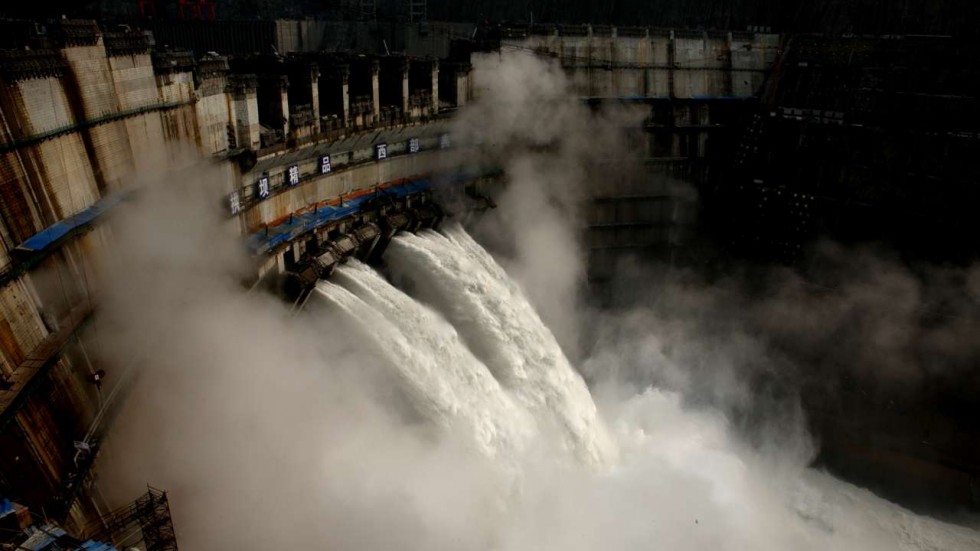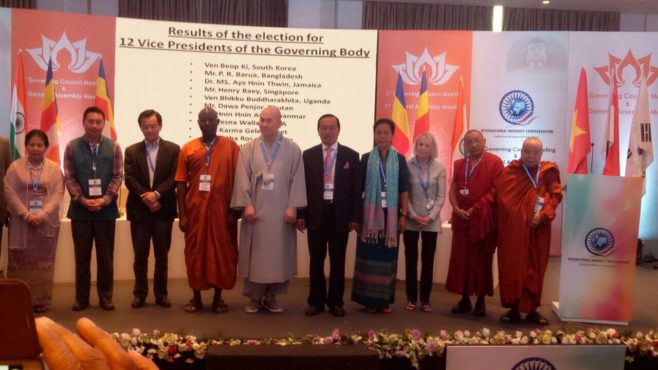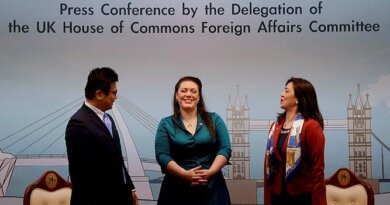Sikyong declares China’s dialogue with only Dalai Lama’s representatives as brazenly crooked
By Tsering Choephel

DHARAMSALA, 29 April: Sikyong Penpa Tsering, the head of the Tibetan government in exile commonly known as Central Tibetan Administration (CTA) condemned the Chinese government’s latest statements regarding Sino-Tibet dialogue as “nothing new” but “brazenly crooked talk”, as stated in CTA’s official Tibetan website bod.asia.
Sikyong condemned the Chinese Foreign Ministry spokesperson Wang Wenbin’s statement, calling it “nothing new” but “brazenly crooked talk,” during his address at a Tibetan gathering in Swiss yesterday.
He said, “Their demands of what His Holiness can and can not do while our country is under their occupation and oppression is a brazen act of crooked” and added, “We can not accept that.”
Recently, both Sikyong as well as CTA’s Department of Information and International Relations Minister Norzin Dolma confirmed the existence of ‘back channel’ communications with China while expressing little hope of positive outcomes.
However, On Friday, Wang Wenbin during a media briefing in Beijing, in response to the CTA’s recent statements said “The so-called Xizang’s (Tibetan) government-in-exile is a completely separatist political bloc. It is totally against the Chinese Constitution and laws. It is illegal.” Completely denouncing the CTA, Wang outlined the Chinese Communist Party’s (CCP) “two basic principles for contacts with this (Dalai Lama’s) group.”
“First, we will only have talks with the representatives of the 14th Dalai Lama instead of the so-called representatives of the so-called government-in-exile or the so-called administrative centre,” Wang said. The second point of the talk, he emphasised will be only about the arrangement of ‘return’ and ‘personal future’ of the Dalai Lama.
Sikyong acknowledged the dialogue with the Chinese government as indispensable in order to resolve the Sino-Tibet issue. “The CTA therefore continues its awareness and advocacy campaign at international organisations and to global citizens to pressure the CCP onto the dialogue-table” he said.
Moreover, Sikyong revealed that he receives messages from Chinese authorities commenting on what he does and does not. He said that in response he told them, “We will regard your comment with consideration only when we see positive changes occurring in Tibet.”
For the uninitiated, nine rounds of talks were held between the envoys of His Holiness the Dalai Lama and representatives of China’s United Front Work Department since 2002.
During the course of nine rounds of Sino-Tibetan talks, the Tibetan side had presented to the Chinese leadership a Memorandum and Note seeking genuine autonomy for Tibet as enshrined in the Chinese constitution and Law on Regional National Autonomy.
The ninth and the last round of talks was held in 2010 and in 2012, the envoys of His Holiness the Dalai Lama resigned from their positions citing the overall deteriorating situation inside Tibet and “lack of willingness and sincerity” from the Chinese side.
Many observers view the CCP’s patterned dealing with exiled Tibetan leadership as a strategy of narrowing the issue of Tibet to the mere issue of the Dalai Lama. The Dalai Lama himself, on several occasions, has emphasised that despite the Chinese government’s attempts and insinuations, “the issue of Tibet is the issue of six million Tibetans.”
With the recent arrest of Jian Guo, an aide to German MEP Maximillian Krah in the European Parliament, in Germany on the charges of being an “employee of a Chinese secret service” and Guo Wengu Who has been jailed in the US since last year on multiple criminal charges, the exiled leadership’s acumen in identifying ‘friends and foes’ from China becomes questionable.
Guo who had visited Dharamsala under the arrangement of DIIR and met with the Dalai Lama six years ago, wrote about his experience and published it on the Chinese language website of the CTA. Wengu has visited the centre of the exiled Tibetan community multiple times and also had private audiences with the Dalai Lama.






